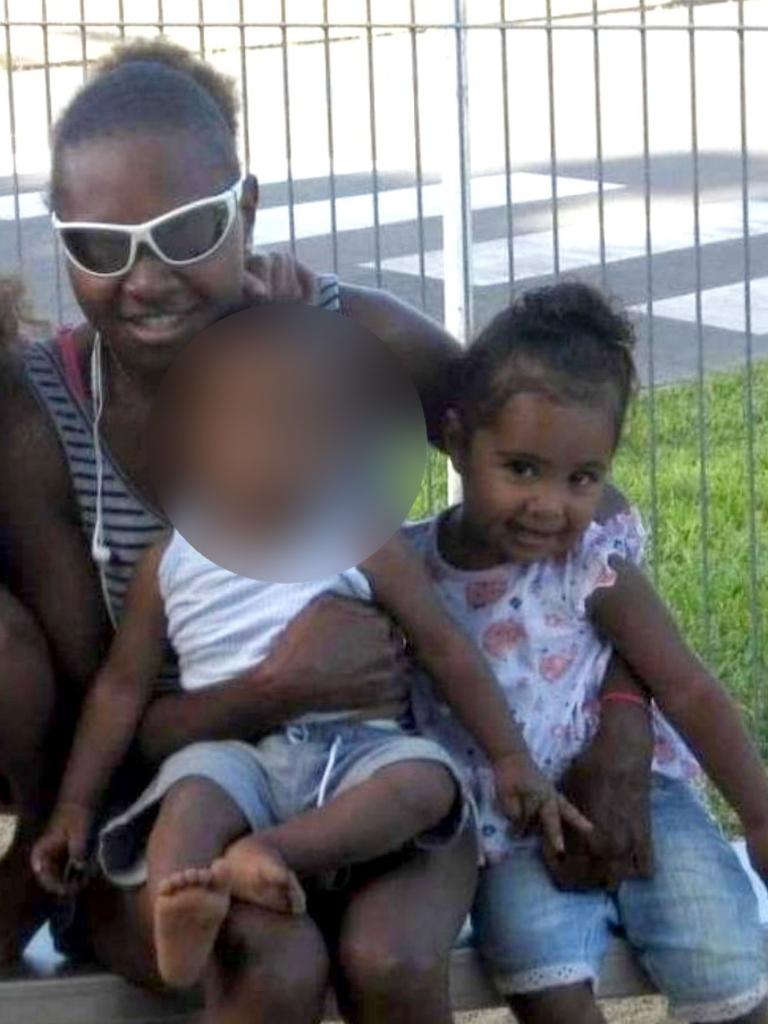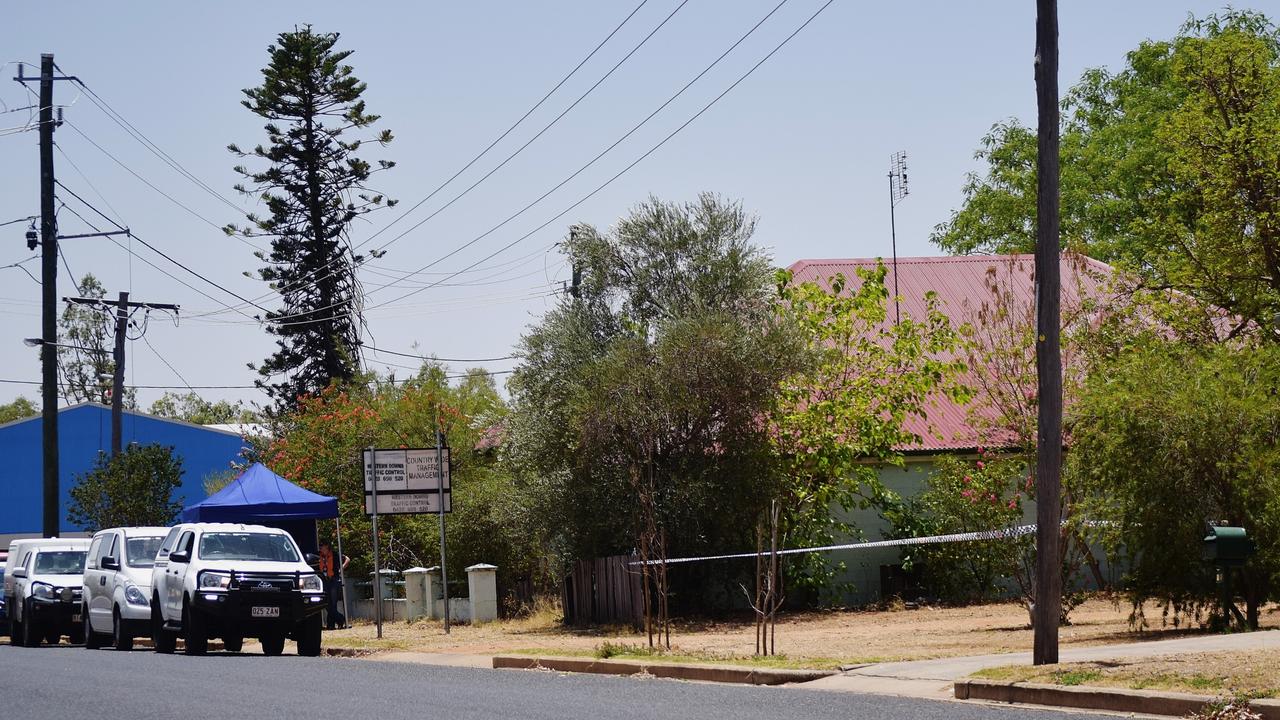Kaydence Mills: Child safety whistleblower points to failings in murdered toddler’s case
A former child safety employee with first-hand knowledge of Kaydence Mills’ heartbreaking murder case has spoken out about how the little girl slipped through the cracks.

WARNING: Aboriginal and Torres Strait Islander people are warned that the following article contains images of the deceased.
“How does this happen to a child known to child safety?”
It’s a question everyone asks when hearing of the heartbreaking murder case of two-year-old girl Kaydence Mills, who was unknowingly missing from a Western Downs town for years just months after being released from the state’s care.
A former employee of the Department of Child Safety, who has first-hand knowledge of the case, said there were some failings in the system, however they occurred after the child was killed by her stepfather Tane Desatge.
This month the 44-year-old was found guilty of murdering and torturing Kaydence in a Chinchilla home in 2017, a handful of months after the family relocated 1359km away from her mother’s, Sinitta Dawita’s family in Tully.
The former Child Safety worker said after the family moved, it was normal procedure for the department not to physically check in on every child once their case is closed – noting every year about 11,000 to 12,000 children entered the system.
“There were no reports, no one was complaining, so the department had no reason to visit,” he said.
Kaydence’s biological father, Robert Mills, told The Courier-Mail he made multiple reports to Child Safety with concerns for Kaydence’s welfare, but he believed they disregarded his complaints because of his criminal history.

The former child safety employee agreed the department didn’t take Mr Mills’ concerns seriously because of his character, his relationship with Ms Dawita, and how often parents rang the department reporting issues they had with contacting their child.
“That happens in a lot of custody disputes,” he said.
“One in every couple of hundred calls (on a weekly, sometimes daily, basis) is a real call, but you have to sift through those.”
He said a missing person report should have been logged for Kaydence in October 2018 following a domestic violence incident when the Queensland Police Service and Child Safety visited the Chinchilla home.
“It was a failing on both of the department’s behalf,” he said.
“No one knew where Kaydence was then and she wasn’t at the home when police attended so there was a breakdown in the record collection.”
He said the Child Safety officers who attended the home were relatively new and had limited experience.
During the murder trial, the court was told the Child Safety officers who attended the home asked where Kaydence was, but never followed up on the alleged family member they were told she was staying with. The officers also weren’t provided with the address, full name, or number of the family member.
Regardless, Kaydence was already dead.

The little girl remained buried in garbage bags at the Chinchilla Weir for another year before anyone began looking for her.
Undercover detectives recovered Kaydence’s remains in March 2020 following an extensive months-long investigation - six months later she was finally laid to rest on Gulngay Country.
The former Child Safety worker said despite minor failings of the departments, 95 per cent of the time the state got it right.
“If they didn’t, there would be 100 more Kaydences, 100 more Mason Lees,” he said.
“When a child dies, the thing to remember is there can be system failings at the back end of that but along the way, there are failings from society in Kaydence’s case, and in Mason Lee’s case, and even in the case of two (Logan) girls who died in the car.
“There were failings by society, the family in general, and broader society not to actually raise the alarm sooner and more children would be safer if everyone had the bravery, and it is a brave thing to do, is call up and say ‘hey I was worried about this child’.”

He said during Queensland Child Protection Week in September, the motto was ‘Every child deserves a fair go”.
“That’s what Kaydence didn’t get, that’s what Mason Lee didn’t get, and that’s what unfortunately too many kids don’t get,” he said.
“But because of the work that Child Safety does, a lot more kids get a fair go than they would otherwise have if Child Safety didn’t exist.
“We all have a responsibility.”
He said Kaydence’s case was hard for him to talk about, as it was the other Child Safety officers involved in the case.
“The media only reports on the tragedies and there’s the vast amount of work that child protection and child safety officers do that’s great work and keeps literally thousands upon thousands of children safe every year,” he said.
“I know that everyone who was involved are really good quality human beings, whether it’s this case in particular, or other cases, everyone I worked with at the department was affected by the cases.
“We have our hearts broken by the actions of parents all the time and it is a tough gig, and it is the actions of parents who are the most disappointing part of this.
“But it’s worth it.”

A Department of Child Safety spokeswoman said the murder of Kaydence was a terrible tragedy.
“Like all Queenslanders, we are appalled at the level of cruelty inflicted on an innocent child and the level of deception from those meant to care for Kaydence,” she said.
“We extend our deepest sympathies to Kaydence’s family members and friends and are gratified that the person responsible for Kaydence’s horrendous death has been brought to justice.
“All children have the right to grow up safe, connected, and supported in their family, community, and culture.”
The spokeswoman said legislation prevented them from commenting on individual cases – however the department chose not to answer questions about specific policies and procedures.
She said the state invested “heavily in the child safety system to ensure it is as robust as possible,” which included working with other government agencies to “improve training, practice guidelines, and information systems”.
“We have strengthened our training relating to domestic and family violence and our practices regarding Intervention with Parental Agreement and reunification,” she said.
During the first three months of 2024, the spokeswoman said more than 600 children’s cases were closed after they were returned to their original caregivers.
Since Kaydence’s case was closed in 2015, the spokeswoman said the department had more than doubled the amount of child safety officers working across the state - 1,403 officers up from 518.
“We are committed to continual improvement and doing all we can to meet the needs of Queensland’s most vulnerable children… to prevent future harm and deaths where possible,” she said.








